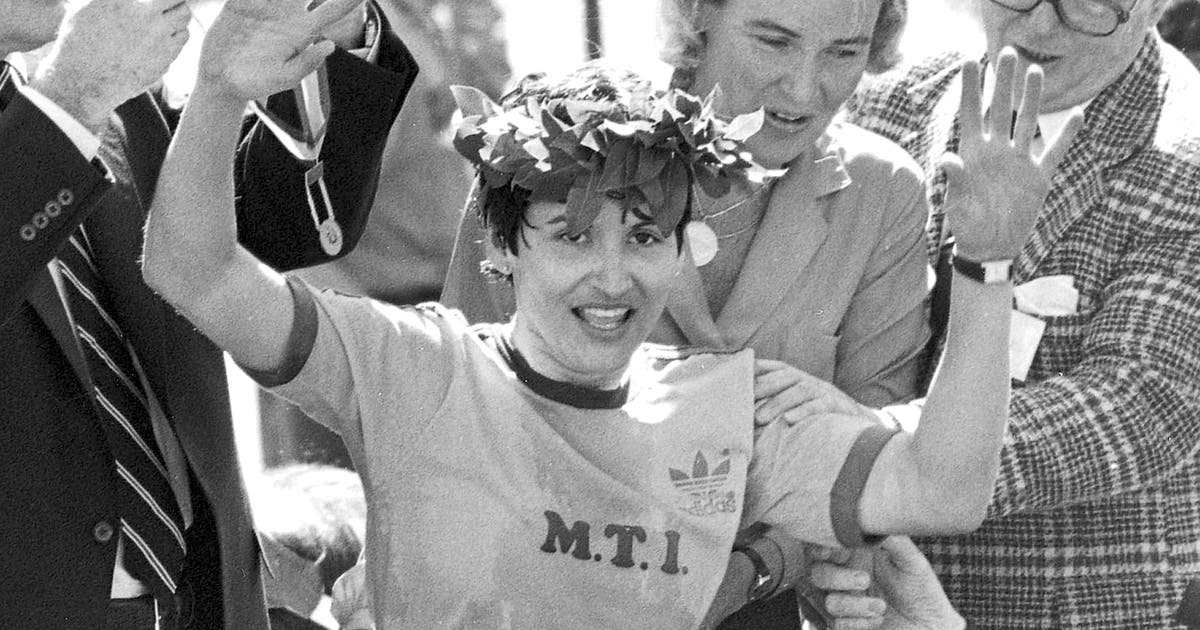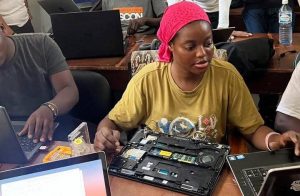Rosie Ruiz, Boston Marathon course-cutter, dies at 66


BOSTON (AP) — Rosie Ruiz, the Boston Marathon course-cutter who was stripped of her victory in the 1980 race and went on to become an enduring symbol of cheating in sports, has died. She was 66.
Ruiz, who was also known as Rosie Vivas, died in Florida of cancer on July 8, according to an obituary that made no mention of her Boston Marathon infamy. Running magazine first made the connection this week, a fitting end to one of the oddest chapters in the history of the race.
“It’s a colorful part of the Boston Marathon history, that’s for sure,” said Bill Rodgers, who won the men’s race that year and was immediately suspicious of the woman sitting next to him on the awards podium. “Poor Rosie, she took all the brunt of it.”
An unknown who didn’t look or act like she had just run 26.2 miles, Ruiz finished first in the women’s division in Boston in 1980 in a then-record time of 2 hours, 31 minutes, 56 seconds. Even as she was awarded her medal and the traditional olive wreath, her competitors wondered how a woman they hadn’t ever heard of — or seen on the course — could have won.
“We knew that she had jumped in. We, who knew what the marathon was, we got it,” Rodgers told The Associated Press on Thursday. “She wasn’t sweating enough; she had on a heavy shirt; she didn’t know about running.
“I was with her the next day on TV, and she was just crying her head off,” Rodgers said, adding that he thought Ruiz wanted to confess. “If she had just said, ‘I’m sorry. I made a mistake.’ Runners — we all drop out of races — we would have understood.”
In an era before tracking chips and electronic checkpoints, race organizers used spotters to scribble down the bib numbers of runners going by. (They focused mainly on the men’s race.) Ruiz did not show up there, on videotape or in any of 10,000 photographs taken along the first 25 miles of the course.
Grilled by the Boston Athletic Association about her training methods and pace, she had no answers and did not seem to recognize terms that would be common for elite marathoners; she also could not identify landmarks she would have passed on the course. Two Harvard students soon came forward to say they saw her join the race near Kenmore Square, about a mile from the finish.
Ruiz was stripped of her title eight days after the race. Canadian Jacqueline Gareau was declared the rightful winner and brought back to Boston the next month to receive her due.
“People, they’re still sorry for me. But at the same time I think they should feel sorry more for her,” Gareau, who also came in second in Boston twice and had two other top-10 finishes, told the AP.
“Like everybody says, she’s part of my life. I cannot separate from her because of that story. She’s not a friend, but she’s been there so long.
“I wish she would have contacted me some time and said ‘I’m so sorry,’ but no,” Gareau said. “She would have probably had a better life and felt better.”
It was never established how Ruiz got to Kenmore Square, but the ensuing investigation showed she took the subway during the 1979 New York Marathon to obtain her qualifying time for Boston.
The B.A.A. declined to comment on her death.
Ruiz always maintained that she won the race fairly and never returned the medal she received on race day. (Gareau was given a substitute.)
Ruiz vowed to run Boston again, to prove that she could do it.
She never did.
Gareau said she bumped into Ruiz at a 10K run in Miami in 1981, about nine months after Boston.
“She presented herself to me, she said ‘Hi, I’m Rosie Ruiz.’ I just said, ‘Hi,’” Gareau recalled. “She still told me she won. So I didn’t really discuss it with her.”
Born in Havana, Cuba, Ruiz came to the United States as an 8-year-old and settled with relatives in the Miami area. According to the obituary posted by the Quattlebaum Funeral, Cremation and Event Center in West Palm Beach, Florida, she studied piano at Wayne State College in Nebraska, moved to New York for five years and then back to Florida, where she worked as an accounts manager for a medical laboratory and as an accreditation specialist for the Better Business Bureau.
She married Aicaro Vivas in 1984 and the couple divorced 2 1/2 years later. According to the obituary, she is survived by her domestic partner, Margarita Alvarez, and a brother, Robert Ruiz.
The marathon shortcuts were not Ruiz’s only — or most serious — transgressions: The Boston Globe reported that she was arrested in New York on charges of stealing $60,000 in cash and checks from her employer in 1982. A year later, she was sentenced to three years of probation for cocaine trafficking.
“She had a family. She was a loving person. She studied music, which tells me she did some good stuff in her life. But then this part of her life was a little bit weird. Never admitting it, too,” Gareau said. “I would not like to be in her place.”








